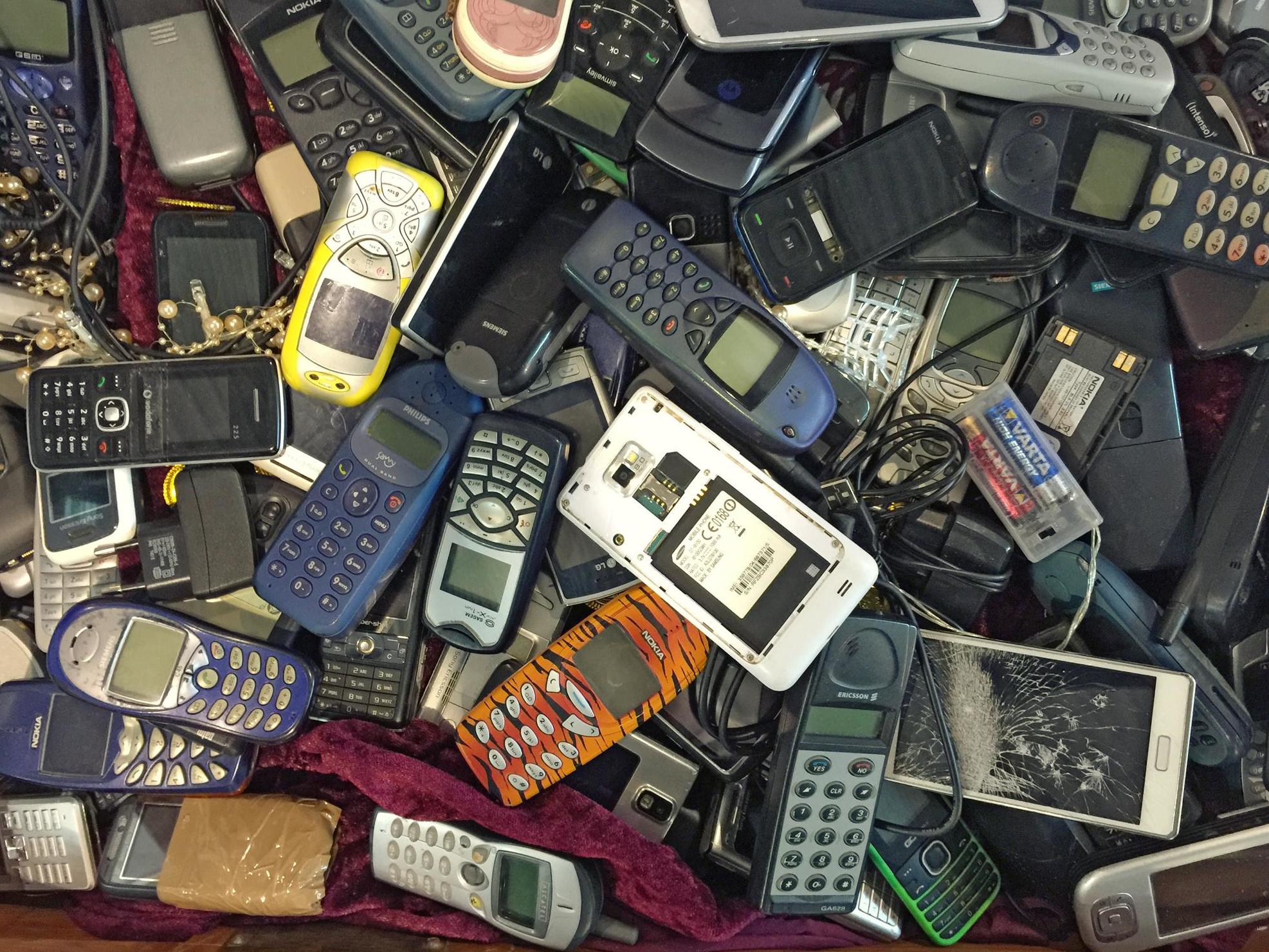Valuable ‘rare earth elements’ found in 40 million unused electronic gadgets lying in UK homes
Natural sources of six elements found in mobile phones are set to run out within 100 years

There are up to 40 million unused electronic gadgets in UK homes which contain valuable “rare earth elements”, according to a new report.
Old phones contain elements such as gold, arsenic and rare elements such as indium, the Royal Society of Chemistry (RSC) said after it carried out a survey of just how much unused technology is being stockpiled in UK households.
Natural sources of six of the elements found in mobile phones are set to run out within the next 100 years yet most people said they had no plans to recycle their devices.
More than half (59 per cent) of the 2,000 people who took part in an online survey, said knowing this would make them more likely to do so.
The findings also revealed that half of respondents had at least one unused electronic device and 45 per cent of households had up to five.
Inside the former Soviet uranium mining town of Min Kush
Show all 21“We need action now – from governments, manufacturers and retailers – to make reuse and recycling much easier, and we must enable a new generation of chemistry talent to help,” said Robert Parker, the RSC’s chief executive. “The UK has a tremendous opportunity to become a world leader in this and set an example for other nations to follow.”
Another concern over the recycling of unused devices is that they often contain what are known as “conflict elements” such as tin, gold, tungsten and tantalum, which are mined in areas where battles and child labour are often a routine part of their mining.
Indium is vital for touch screens because it conducts electricity and is transparent.
Mr Parker said: “Chemical scientists are already working to find ground-breaking solutions – by investigating long-term substitutes for rare elements in devices, or by finding new chemical methods to extract precious materials and reuse them – but we all can and must do more.
“As individuals, reuse and recycling are the best options available to us, but even if recycled it is still extremely difficult to recover some of these elements from unused devices.”
Additional reporting by Press Association
Subscribe to Independent Premium to bookmark this article
Want to bookmark your favourite articles and stories to read or reference later? Start your Independent Premium subscription today.

Join our commenting forum
Join thought-provoking conversations, follow other Independent readers and see their replies